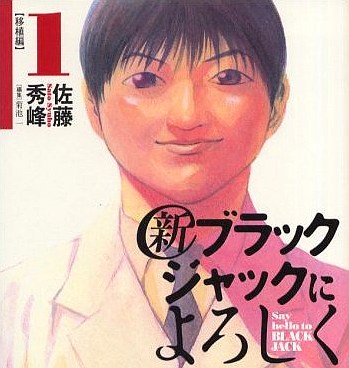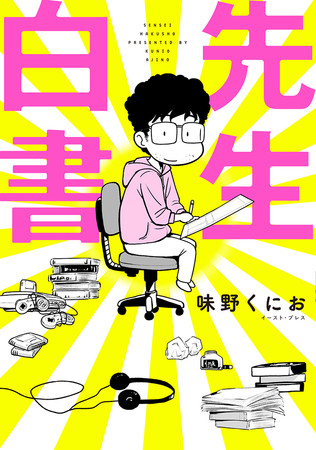Interest
New Manga Creator, Veteran Continue Debate Over Assistants' Working Conditions
posted on by Jennifer Sherman
 Shunsuke Kakuishi launched his Yawara no Michelangelo judo manga (seen right) as his debut series as a creator in October. He has since been reflecting on the plight of manga assistants, and he posted a request to Norifusa Mita (Investor Z, Dragon Zakura) on Sunday. Kakuishi's post asked Mita to pay him unreceived overtime pay he incurred while working as Mita's assistant for 11 years and 7 months. More than actually receiving money, Kakuishi hoped that his post could help shed like on the working conditions for manga assistants and become a step towards improving the industry.
Shunsuke Kakuishi launched his Yawara no Michelangelo judo manga (seen right) as his debut series as a creator in October. He has since been reflecting on the plight of manga assistants, and he posted a request to Norifusa Mita (Investor Z, Dragon Zakura) on Sunday. Kakuishi's post asked Mita to pay him unreceived overtime pay he incurred while working as Mita's assistant for 11 years and 7 months. More than actually receiving money, Kakuishi hoped that his post could help shed like on the working conditions for manga assistants and become a step towards improving the industry.
At the very least, Kakuishi's post has spurred conversation. Manga creator Shuho Sato (Say Hello to Black Jack, Umizaru) posted a response on his own personal blog and revealed he feels torn about Kakuishi's post. Because he has worked both as staff for a manga creator as well as as a creator himself, he can see the issue from the perspective of both Kakuishi and Mita.
Sato said that he worked under harsh conditions in his early 20s during the two years and three months that he served as an assistant to Kaiji manga creator Nobuyuki Fukumoto. He described working 90 to 140 hours per week, getting only about 10 hours of sleep per week, and receiving the equivalent of 200 yen (about US$1.79) per hour in pay with no overtime pay. Because of his experience, Sato vowed to treat his employees better when he became a manga creator.
However, Sato admitted that he was naive when he first hired staff as a manga creator. He made efforts to give his staff fair pay and adequate time off, but he still ended up violating the Labor Standards Act in some ways. Sato has adjusted his policies over the years. He raised the initial starting salary for his employees and now offers raises twice per year with a bonus of four months pay per year. He also covers some commute expenses, provides insurance, and offers regular holidays off in addition to two days per week. Nevertheless, he admitted he is still operating in a "gray" area of the law because his staff sometimes work 12-hour days.
With that in mind, Sato wonders if his assistants hold ill feelings toward him despite his best efforts to provide proper working conditions. He is unsure if there is a complete solution to solve these problems in the manga industry. He feels a sense of helplessness, for example, because manga creators themselves may not have enough money to properly pay their staff members. He said, "What should we do?" and implied that it may be better if the manga industry fails so that it might be rebuilt.
 Sato also responded to Kakuishi's comments that assistants are effectively unable to request or receive incentives because creators are in positions of greater power. Kakuishi stated in his blog post that creators may not give their staff sufficient pay simply because they do not want to. Sato said that creators are not obliged to divide royalties related to copyrights, which creators or their managing companies may hold, among staff members. He added that if a successful manga brings in sufficient revenue, staff members should receive raises and bonuses because royalties are reserved for people on the management side. However, such people may face greater financial risk if a work fails to sell well.
Sato also responded to Kakuishi's comments that assistants are effectively unable to request or receive incentives because creators are in positions of greater power. Kakuishi stated in his blog post that creators may not give their staff sufficient pay simply because they do not want to. Sato said that creators are not obliged to divide royalties related to copyrights, which creators or their managing companies may hold, among staff members. He added that if a successful manga brings in sufficient revenue, staff members should receive raises and bonuses because royalties are reserved for people on the management side. However, such people may face greater financial risk if a work fails to sell well.
In an emotional counter response, Kakuishi then said on Twitter that he fully understands assistants are not entitled to royalties, and he wrote his initial blog post because he does not agree with the system. As far as Sato's suggestion that assistants might try to negotiate royalties into their contracts if they want them, Kakuishi said he thinks such an idea is unrealistic for assistants with their relatively low status. In response to Sato's "What should we do?" comment, Kakuishi emphasized that creators must work to comply with the Labor Standards Act. Kakuishi said to Sato via Twitter, "Don't you have any feelings?"
Sato engaged Kakuishi on Twitter and apologized for coming across as insensitive towards manga creator assistants and their situations. He again issued a blog response in which he apologized, but said he is concerned Kakuishi may inadvertently become a hypocrite now that he has become a manga creator.
Kakuishi revealed on Twitter that he sometimes has an assistant help him with his work, and they work together in a simple and inexpensive apartment. He pays his assistant 20,000 yen (US$180) per day for eight hours of work with a one-hour break, and the assistant never works overtime.
Sato wonders if Kakuishi is truly complying with Japanese law, despite his efforts and intentions. As a more experienced manga creator, Sato said he now completely conforms to labor laws but acknowledged that may not be easy for new manga creators.
Kakuishi then affirmed his intentions to educate himself and continue to improve his practices. He added that he knows of no completely "white" workplaces. He has continued to discuss the related problems in the manga industry with fellow Twitter users.
 The working conditions in the manga industry remain under criticism, and the issues surrounding the legality of specific circumstances are complex. Nevertheless, some manga creators are known for treating their assistants particularly well.
The working conditions in the manga industry remain under criticism, and the issues surrounding the legality of specific circumstances are complex. Nevertheless, some manga creators are known for treating their assistants particularly well.
Kunio Ajino worked for Hunter X Hunter manga creator Yoshihiro Togashi from when Togashi's Yu Yu Hakusho manga debuted in 1990 to the end of Level E in 1997. Ajino recounted that period in his Sensei Hakusho manga book, which shipped in September.
According to the book, Togashi hesitated to spend his money on himself, but he paid his assistants a bonus equivalent to four months of salary every year. Many companies in Japan give their employees bonuses in summer and winter, but freelance manga assistants are often less fortunate. Therefore, Togashi's gesture stood out and left an impression on Ajino. Togashi's former assistant also recalled in the book that the successful creator would pay for his staff's meals and even give them his wallet to cover expenses for things they needed. Ajino also noted that Togashi was friendly and helpful to work with, and he was known to joke with his staff.
Sources: Nikkan Sports (link 2), Anime Now! (Sarah Nelkin) via Yaraon! (link 2), Buzz Plus News
Disclosure: Bandai Namco Filmworks Inc., a wholly owned subsidiary of Bandai Namco Holdings Inc., is a non-controlling, minority shareholder in Anime News Network Inc.
this article has been modified since it was originally posted; see change history